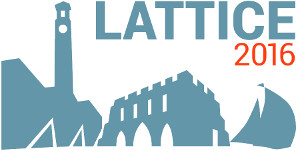Speaker
Dr
Kate Clark
(NVIDIA)
Description
The past decade has witnessed a dramatic acceleration of lattice quantum chromodynamics calculations in nuclear and particle physics. This has been due to both significant progress in accelerating the iterative linear solvers using multi-grid algorithms, and due to the throughput improvements brought by GPUs. Deploying hierarchical algorithms optimally on GPUs is non-trivial owing to the lack of parallelism on the coarse grids, and as such, these advances have not proved multiplicative. Using the QUDA library, we demonstrate that by exposing all sources of parallelism that the underlying stencil problem possesses, and through appropriate mapping of this parallelism to the GPU architecture, we can achieve high efficiency even for the coarsest of grids. Results are presented for the Wilson-clover discretization, where we demonstrate up to 10x speedup over present state-of-the-art GPU-accelerated methods on Titan. Finally, we consider how the combination of multigrid, NVIDIA's new Pascal architecture and block Krylov solvers result in a multiplicative speedup of 100x versus prior GPU state of the art.
Author
Dr
Kate Clark
(NVIDIA)
Co-authors
Dr
Alexei Strelchenko
(Fermilab)
Mr
Arjun Gambhir
(College of William and Mary)
Dr
Balint Joo
(Jlab)
Dr
Mathias Wagner
(NVIDIA)
Dr
Michael Cheng
(Boston University)
Prof.
Richard Brower
(Boston University)

